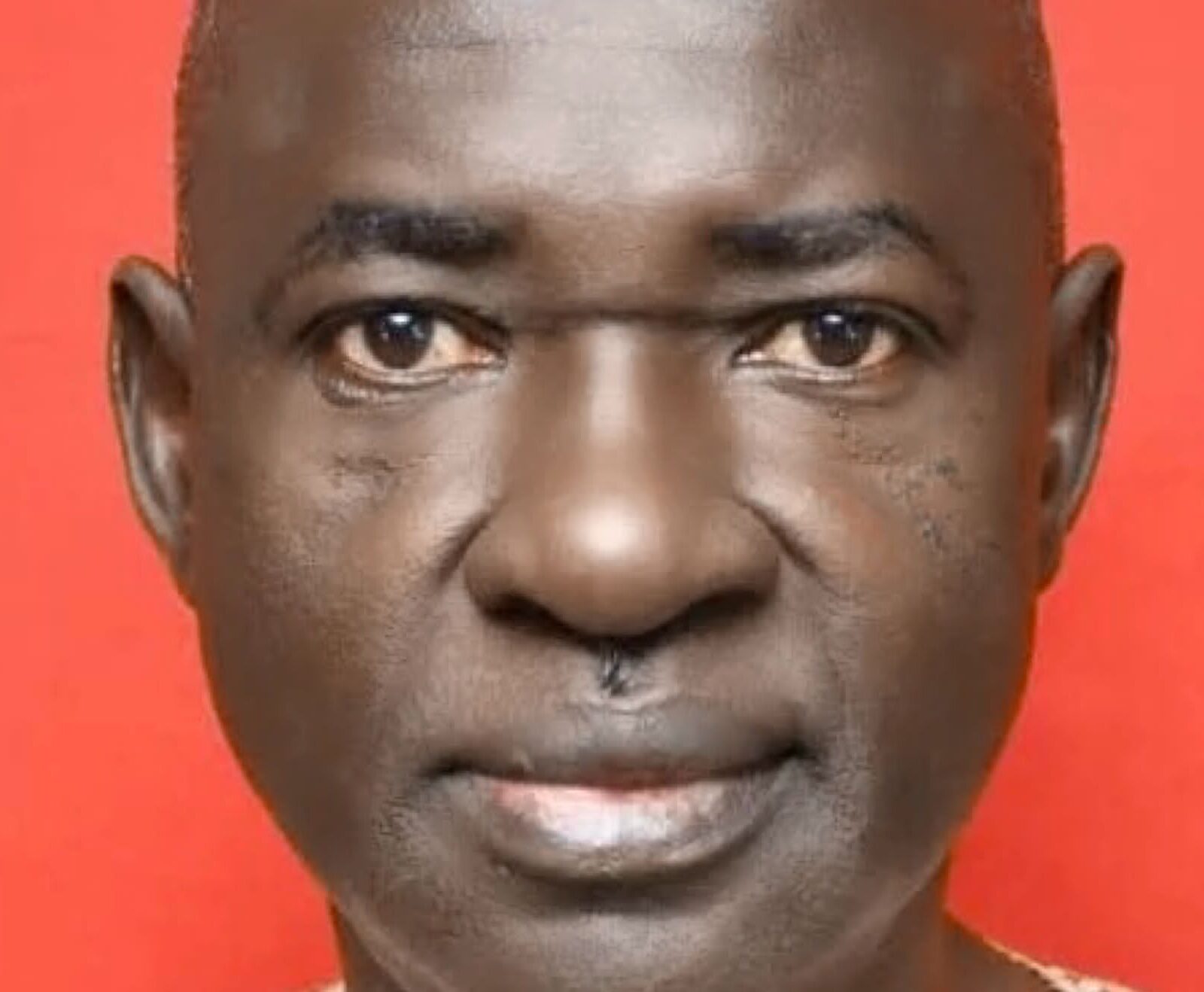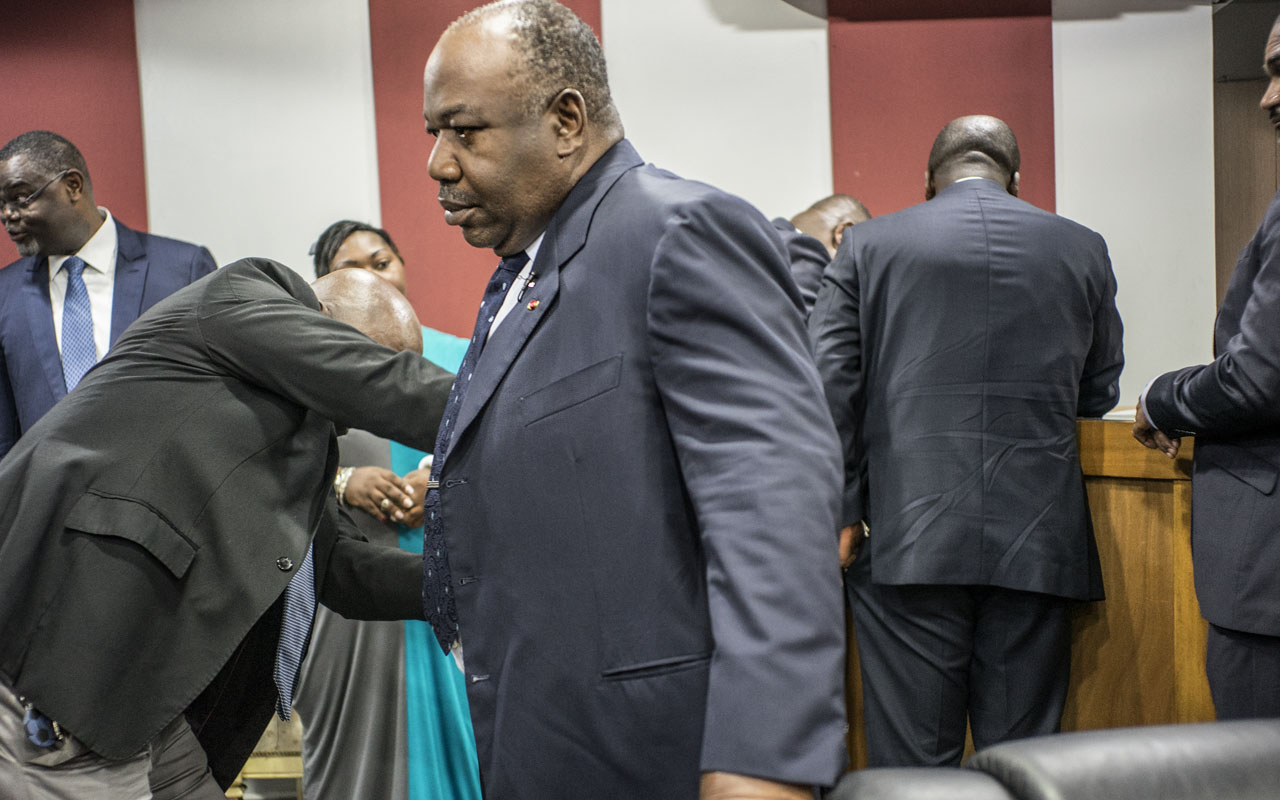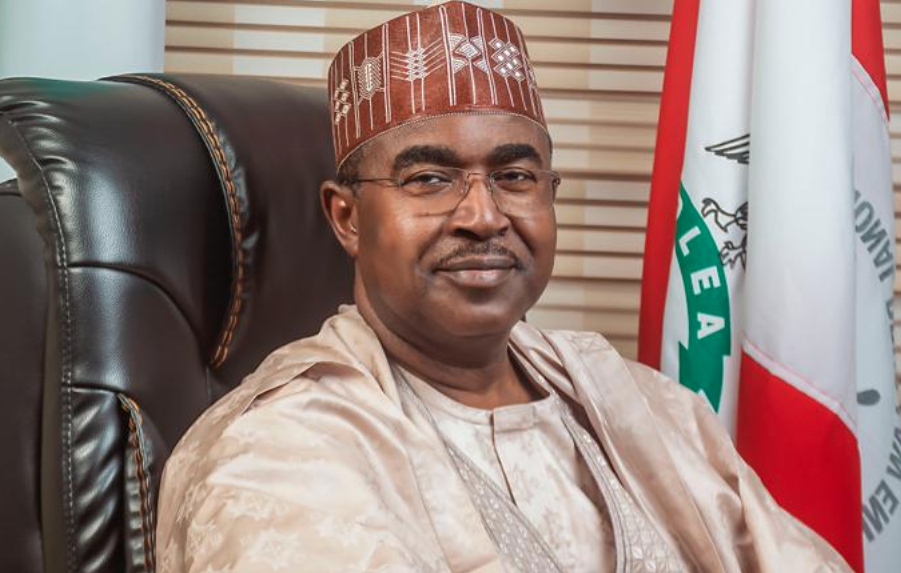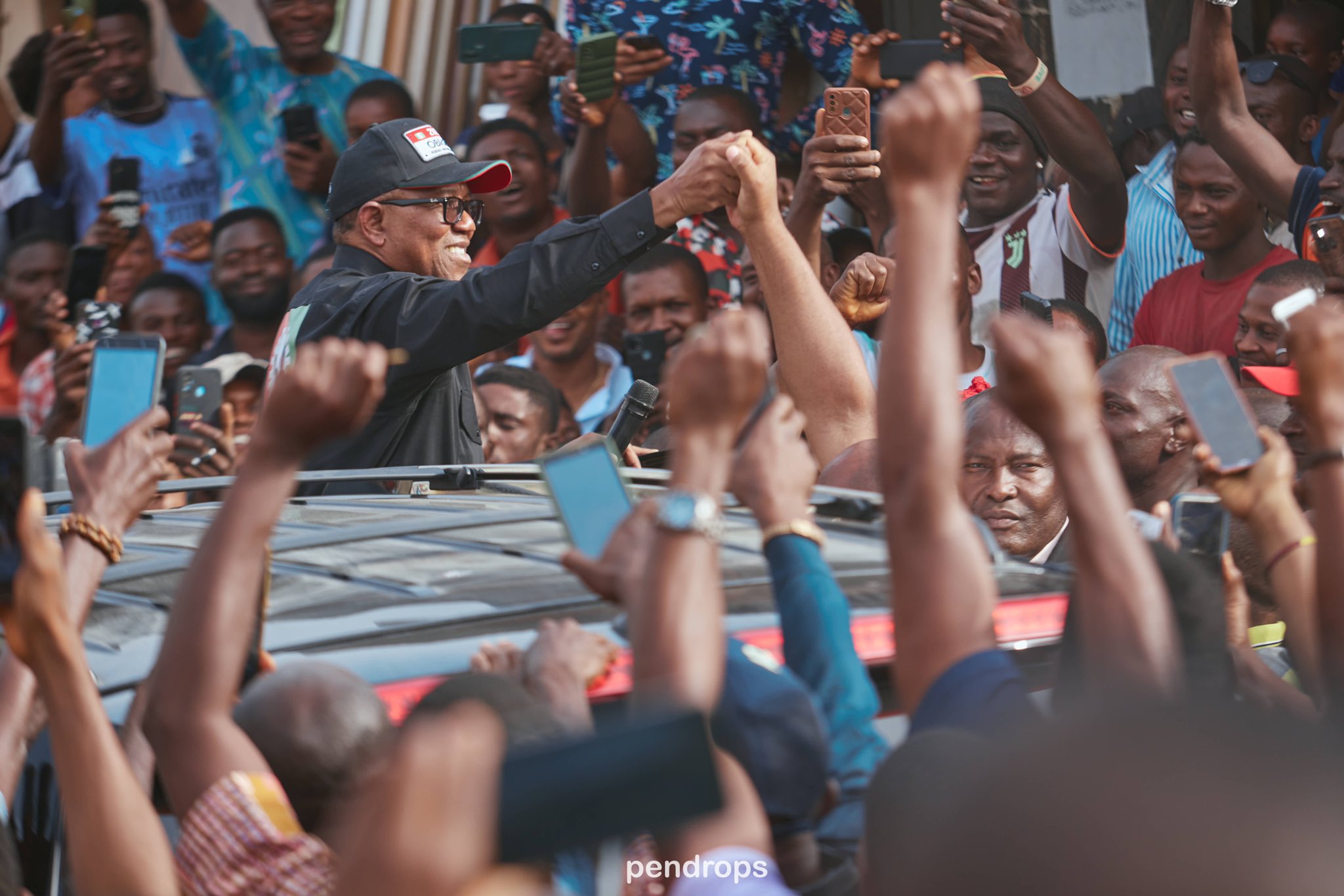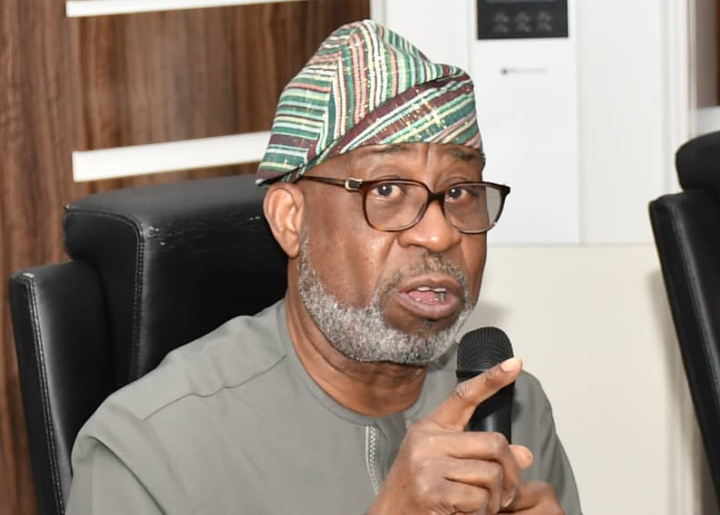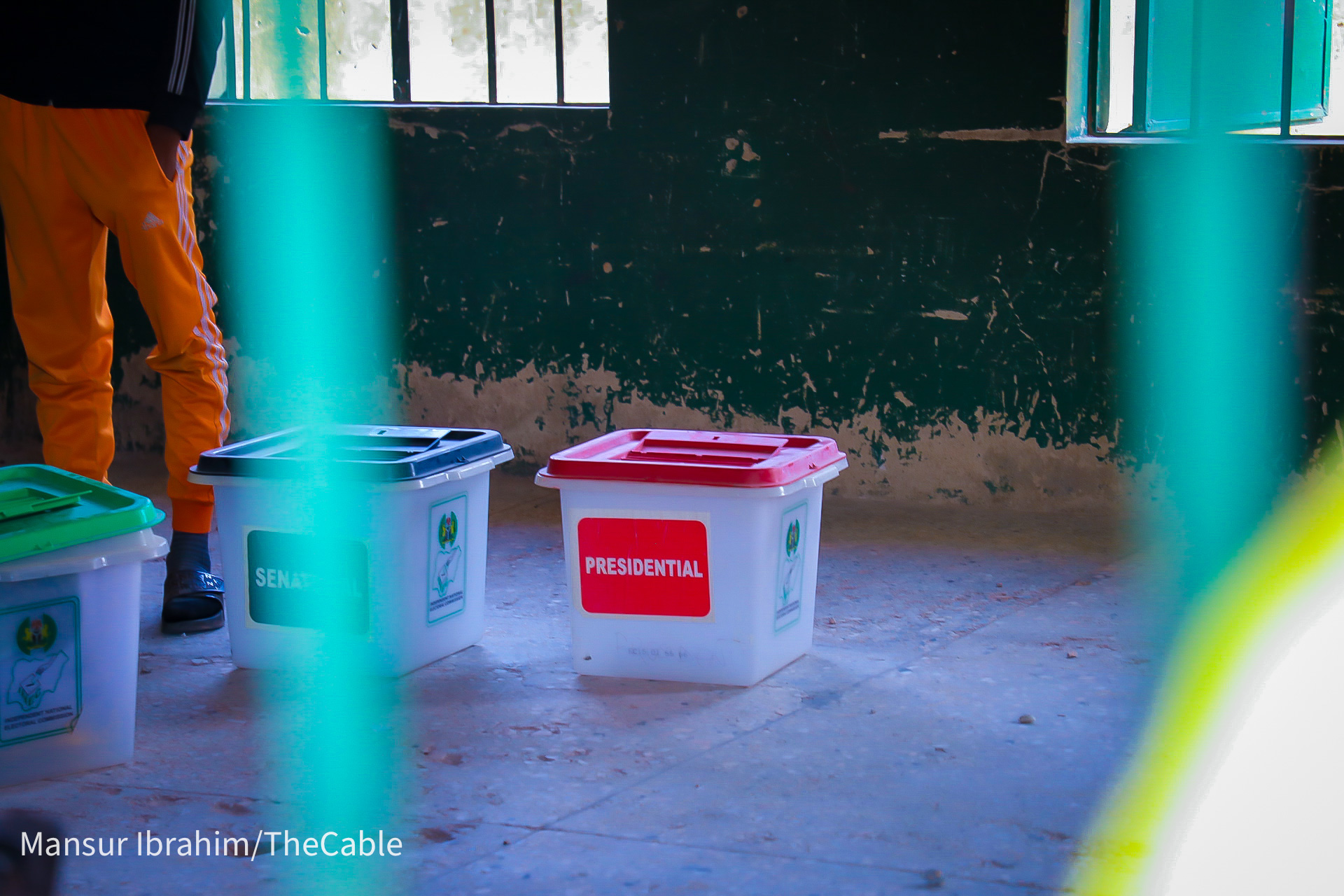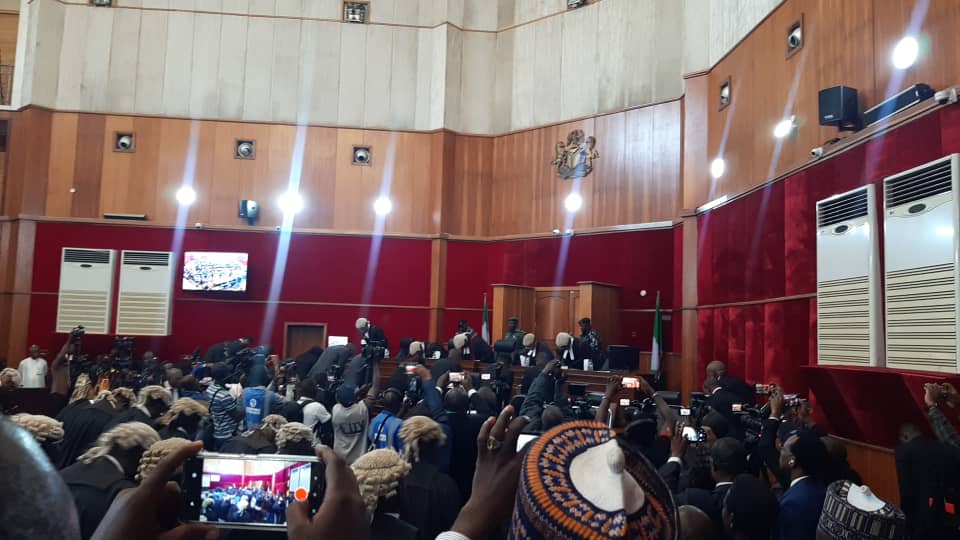Ali Bongo is fitted with a microphone while in power (Credit: Guardian Nigeria)
The memories of the April 22, 1990 military coup in Nigeria have refused to leave me. I left my house in Ojodu, Lagos that morning for a church service in Ikeja, oblivious of the historic operation underway. My decision to first visit a cousin in Ikeja led me into the gathering of his neighbours listening attentively to the voice of Gideon Orkar who was addressing the nation “on behalf of the Nigerian armed forces.” After digesting the broadcast, I came to the conclusion that the plan to unseat the administration of General Ibrahim Babangida would not stand. And I told my fellow listeners so. There was something silly about plotting to dismember Nigeria in a coup announcement.
That attempt lacked some critical elements the two successful ones in the 1980s, namely those announced by generals Sani Abacha and Joshua Dogonyaro, had. Orkar and his gang had hoped that Nigerians would troop to the streets and celebrate their liberation from heaven knows what. Whatever their projections and objectives were, they simply fell flat and failed to resonate with the generality of the people. That misadventure, in addition to its own tactical deficiencies, clearly did not pass the popular test. It also marked the last time the khaki boys made open moves to wrest political power from civilians in Nigeria.
Since then, however, some other countries in Africa have been reminding the world that the very act of grabbing seats of government via the gun may not become extinct soon. For the record, our continent has for so long held the unenviable position of the region with the highest number of coups. In a report published by two American researchers – Jonathan Powell of University of Central Florida and Clayton Thyne of University of Kentucky- last month, of all the 486 coup attempts recorded globally from 1950 to 2022, Africa alone accounts for 214, of which 106 were successful. Its closest rival, Latin America, has 146 attempts with 70 successes. Out of the 54 African nations, 45 have witnessed political power seizure drama at least once.
If this profile is discomfiting, a panorama of the continent’s coups just within the last four years can be really concerning. Riding on sustained mass protests in Sudan, its ex long-time ruler, President Omar al-Bashir, was sacked in 2019 by the armed forces under Ahmed Ibn Auf. Two years later, Gen. Abdel Fattah al-Burhan sent Auf packing. Now, the hostilities between government soldiers and paramilitary rebels have brought the once prosperous country to its knees while struggling to prosecute a transition to civil rule programme. President Ibrahim Boubacar Keita of Mali was removed in 2020. The following year, another coup took place in the francophone nation. Its strongman, Col. Assimi Goita, still holds the reins in Bamako. It was the turn of Chad in April 2021 when President Idriss Deby who had held onto power for 31 years was gunned down while visiting his troops engaged in prolonged battles against rebels in the northern part of the country. His son, Gen. Mahamat Idriss Deby, then succeeded him immediately.
Advertisement
Tunisia registered what’s popularly called self-coup in 2021. President Kais Saied utilised the violent unrest in many parts of the nation to oust the government of Hichem Mechichi. It was the turn of Burkina Faso in January 2022 as President Roch Marc Christian Kabore’s time was ended by Lt. Col. Paul-Henri Sandaogo Damiba who was also kicked out in September by Capt. Ibrahim Traore for failing to frontally tackle the nagging challenge of Islamist insurgency. Today, the coup king in Ouagadougou and his Malian counterpart are the staunchest sub-regional supporters of the new junta in Niger which overthrew President Mohamed Bazoum in July this year.
As if to achieve some regional balance in the continuing equation of leadership turmoil, Gabon, in truth an overdue candidate for change at the helm, has now stepped forward from the Central African zone. President Ali Bongo who had led the oil-rich country since 2009 and whose father, Omar, had virtually pinned the former French colony down from 1967 till Ali took over, was only denied the opportunity to enjoy another rigged term in office occasioned by twisted constitutional provisions and massively flawed elections. A man whose health is visibly compromised and in dire need of delicate nursing, who ought not to even be a local councillor, had enough time to shoot a video while under house arrest, appealing to his supporters to “Make noise! Make noise!! Make noise!!!” on his behalf. Such pitiable sight. So, the fellow actually felt that there were numerous people out there who genuinely loved him and his family. The delusion caused by absolute, unending power must be deep indeed. Students of power succession especially at the national level should find Africa’s resurgent coups intriguing, if not worrying.
Former Nigerian President Olusegun Obasanjo who was also a military head of state in the 1970s expressed his apprehension and the minds of many close watchers of the African political scene some days ago in an interview with TheCable online. He recalled what he observed in2021 in Guinea Conakry after the overthrow of President Alpha Conde. The coup executioners led by Col. Mamady Doumbouya had the full support of the young people and looked set to be in power not for few years but a generation. Conde, lest we forget, had manipulated his country’s constitution to enable him to run for a third term – a practice that has since caught the fancy of autocrats across the continent. Troubled by that experience, Obasanjo travelled to Addis Ababa to bare his thoughts to the chairperson of the African Union Commission, Moussa Faki Mahamat, who was also deeply worried about similar situations in his home country, Chad, and also Mali and Burkina Faso.
Advertisement
Obasanjo made a sobering submission on the subject: “I was the one who in 1999 advocated that if you are not a government backed by the constitution, you should be suspended from the African Union, and these chaps (soldiers in government) don’t even mind any suspension. I told him (Mahamat) that all the instruments we had used in the past would not work and asked what he would do about it. He told me about his challenges, especially with his country. So, we have a situation where we have a continent where we have to rethink democracy. The liberal democracy we are copying from settled societies in the West won’t work for us.”
Even diehard optimists won’t argue with that viewpoint coming from someone who had also toyed with the idea of getting the Nigerian National Assembly to make room for a third term, for his own benefit, when he was supposed to be winding up his tenure in 2007. Apparently in response to the intervention in Libreville, President Paul Kagame of Rwanda and President Paul Biya of Cameroon tinkered with the military hierarchies of their own countries to forestall such a surprise. But how long can panic measures go in injecting stability into the architecture of power changes in a continent already saddled with all sorts of challenges?
It doesn’t help that ours is a place where colonial masters who handed over political power to us long ago still wield huge influence and, in strange ways, authority in some cases. But Africans can’t afford to wallow in complaints and excuses. The leaders should do peer checks as none exists at the moment. Its limitations notwithstanding, true democracy doesn’t have viable alternatives. Matters shouldn’t degenerate further before the African Union (AU) and regional groups start issuing lame communiques. If the current trend graduates to full-scale coup craving, going down the cliff will become inevitable.
Ekpe, PhD, is a member of THISDAY Editorial Board.
Advertisement
Views expressed by contributors are strictly personal and not of TheCable.
